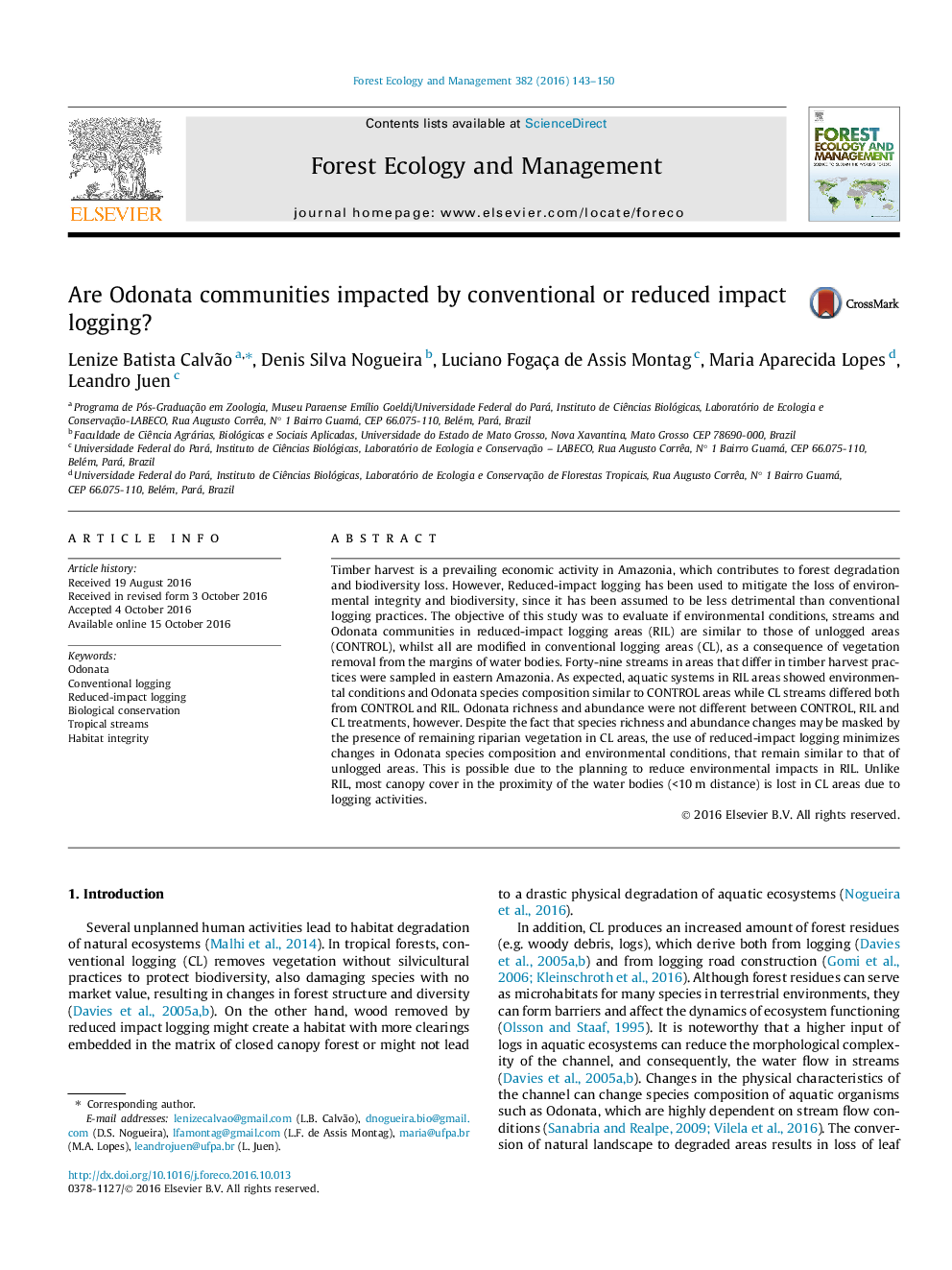| Article ID | Journal | Published Year | Pages | File Type |
|---|---|---|---|---|
| 4759701 | Forest Ecology and Management | 2016 | 8 Pages |
â¢Physical conditions of Amazonian streams are altered by conventional logging.â¢Reduced impact logging does not cause major environmental changes in the streams.â¢Richness and abundance remain the same among the three treatments.â¢On the other hand, Odonata composition changed in conventional logging areas.â¢Tolerant Odonata species occur in conventional logging areas.
Timber harvest is a prevailing economic activity in Amazonia, which contributes to forest degradation and biodiversity loss. However, Reduced-impact logging has been used to mitigate the loss of environmental integrity and biodiversity, since it has been assumed to be less detrimental than conventional logging practices. The objective of this study was to evaluate if environmental conditions, streams and Odonata communities in reduced-impact logging areas (RIL) are similar to those of unlogged areas (CONTROL), whilst all are modified in conventional logging areas (CL), as a consequence of vegetation removal from the margins of water bodies. Forty-nine streams in areas that differ in timber harvest practices were sampled in eastern Amazonia. As expected, aquatic systems in RIL areas showed environmental conditions and Odonata species composition similar to CONTROL areas while CL streams differed both from CONTROL and RIL. Odonata richness and abundance were not different between CONTROL, RIL and CL treatments, however. Despite the fact that species richness and abundance changes may be masked by the presence of remaining riparian vegetation in CL areas, the use of reduced-impact logging minimizes changes in Odonata species composition and environmental conditions, that remain similar to that of unlogged areas. This is possible due to the planning to reduce environmental impacts in RIL. Unlike RIL, most canopy cover in the proximity of the water bodies (<10Â m distance) is lost in CL areas due to logging activities.
